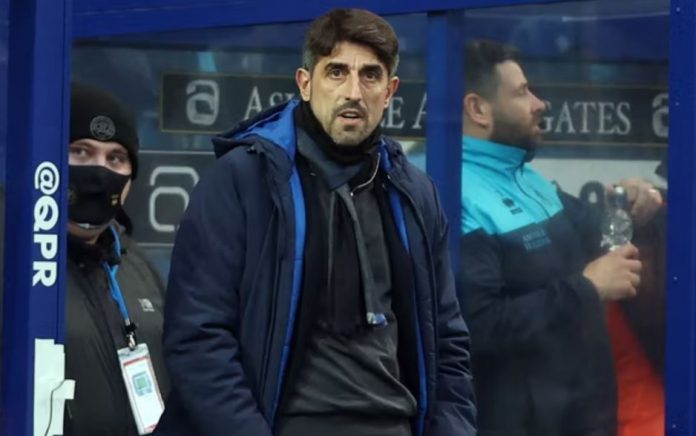Stuart Fuller, from the blog The Ball is Round comments on a week of Wind Ups in England.
The latest fashionable place to be seen as a football club is in court facing a winding up order. Virtually all of these relate to debts owned to Her Majesty’s Revenue and Customs – i.e unpaid tax. So far in January we have seen Portsmouth, Crystal Palace, Cardiff City, Plymouth Argyle and Southend United from the league, and Lewes and Chester City in the Blue Square.
So why now? Southend’s Chairman Ron Martin has a theory:-
“HMRC appear to be sending out winding-up petitions against football clubs like confetti,” Martin said. “The club may now need to apply to the court for an injunction against HMRC“. HMRC has indeed become more aggressive in its dealings with debtors after it lost its protected creditor’s status, meaning that once football debts have been settled in full in insolvency cases, the taxman must wait in a queue alongside all other creditors.
HMRC refused to discuss the specific case at Southend, but a spokeswoman said: “We do not take these steps lightly.”
Winding up orders rarely lead to the end of a football club. We did see the demise of Kings Lynn in November 2009 when the courts took the side of HMRC and wound the club up for a debt of £77,000. Lewes, on the other hand have faced 3 in the past year, despite paying off most of their outstanding debt in accordance with a plan agreed with the Tax man.
Unfortunately it appears a new man took over the case and got aggressive, giving the Blue Square South club just 72 hours to find £48,000 a few weeks ago, which they managed to do at the 11th hour. Chester City face a “final” hearing on 10th March where they need to stump up £26,000 otherwise they will go the same way as Kings Lynn.
However, winding up orders do more than often lead to Administration for a club. In the last 25 years, 69 Football League clubs have entered Administration, some more than once. This week we have seen Crystal Palace decide for a second time that they cannot afford Simon Jordan’s sunbed sessions and have appointed P & A Partnership as the clubs only hope of survival.
But what is Administration, why do clubs do it, and why don’t any ever actually go out of business?
Administration is essentially another world for Insolvency. A business is deemed as insolvent when its debts outweigh its income. A company can call in an Administrator at any time if it feels that it cannot continue with its ongoing business. The Administrator is there to protect the long term and secured creditors (such as staff) and will do everything within their power to ensure the long term survival of the business.
In footballing terms it means as soon as a club goes “into administration” they lose control of the club. The Administrator takes sole charge and can essentially dictate all affairs, apart from naming the team of course, within the football club. Their interest is to freeze all debts, including those to staff and players, and find a viable solution to the issue.
Normally, a creditor will negotiate a settlement of x pence in the pound. Which means that if a club owes £100,000 and a settlement is agreed on for 50pence in the pound, all creditors would get half of what they were owed – but not immediately.
This is where the Company Voluntary Agreement comes into play – the CVA. This is the reason that Luton were docked further points. They had what they believe was an agreement, but it was not ratified so by coming out of Administration they had no legal backing and the league thought they were naughty boys.
So why also dock clubs 10 points? Surely this will make it harder for their long term survival? Yes and no, but the sole reason for this lays in the Leicester City case. At the start of the 2002/03 season the club moved into their new 32,500 all seater Walkers Stadium. Unfortunately the club had run up monsterous debts of £30m and just ten weeks after the start of the season they went into Administration.
The club was eventually purchased by a consortium led by Gary Lineker and creditors were forced to settle for a tiny fraction of what they were owed. The club were then free to start spending again, and off the back of this they won promotion to the Premier League just a few months later.
So the Football League (note – not the Premier League – we will get onto them shortly) decided to stop this happening again, where a club could essentially gain a competitive advantage on the pitch by wiping out their debts. So in came the 10 point Administration penalty. Now the rules are that if you go into administration prior up to and including 6 weeks before the end of the season you get a 10 point penalty there and then (as Darlington have done this season).
If you apply for an Administration order after this date then you might get 10 points now, or you might get 10 points the following season – it depends where you finish in the league. If you are a no hoper and already relegated then you may think that heading off into Administration may seem like a good idea – wrong! You will get minus 10 points next season. However, if you are fighting for survival against relegation, or pushing for promotion then it will deducted there and then.
In the Blue Square Leagues it is different once again with points penalties ranging from 10 points up to 25 points as Chester City found to their surprise in the summer. They can also force teams out of the Conference for other financial irregularities as well – just as Boston United – see Gary Andrews excellent article here.
This season we have seen the first club in the top four levels of the pyramid go under for quite awhile as Kings Lynn lost their mid season fight against their debts in the Unibond Premier and folded, meaning the expunging of their records (is their an official expunger I wonder?)
And finally we have the Premier League. The top table, the creme de la creme. So what is the penalty for such misdermeaners here? Well there isn’t any actually! No Premier League club has ever gone into Administration and so they have never had to decide on a fate.
There have been a number of near misses, most recently West Ham’s situation after the collapse of the Icelandic economy (in theory West Ham were in default of a number of long term commitments in 2008 and should have filed for Administration immediately, but appear to have forgot) and Portsmouth’s current situation is fingernails if ever there was one.
Rumours circulate that the penalty will be 9 points, but any such punishment will almost certainly relegate the club, and with their precarious position it is hard to see them returning to the top table.
In 1923 the Football League consisted of 88 teams. Seventy Five years later 85 of those teams were still in existence. Simon Kuper in a recent article for FourFourTwo compares this with traditional business – how many theatres for instance that were in existence 75 years ago are still open today?
And what about Airlines? Remember such greats as Pan-Am, Pacific South West, Danair or very recently Sky Europe? All no longer in existence. So why can football clubs “bend” the rules? Banks anyone? Lehman’s, Barings, Northern Rock – yet little old Rochdale still carry on as normal.
So in some ways football clubs are more solid than banking institutions. But why do they get into such a state. We can understand some of the debt at the top of the tree as clubs chase the impossible dreams of “breaking into the big four”, or even some Championship teams who gamble on getting into the Premier League.
But what about the likes of Palace? Where did the £30m worth of debt come from? A club living beyond its means? Simon Jordan does not strike many as a reckless businessman, and indeed saved the club from oblivion in 2000 after their previous administration. Cardiff City – smart new stadium, playing at the highest level they have been for decades, yet all of a sudden the vultures are circling above the Cardiff City Stadium.
The club had raised around £3m from a season-ticket initiative to buy players in the January window, but it will no longer be used for that purpose. They will also be selling off “assets” which refers to land and holdings rather than the playing squad.
A statement issued by the club this week said: “The financial health of the club is the ultimate priority.” The Bluebirds face a second winding up order 10 February if they fail to pay an outstanding tax bill of £2.7m owed to Her Majesty’s Revenue and Customs. Chairman Peter Ridsdale made assurances earlier this month that the club was “trading as normal” and there was “no immediate threat” to the future of the club.
So how many more will fall foul of the taxman this season? Surely it is only time before a club in the league is wound up, and if that happens do we enter the forth age of football in England?
Author Alex Fynn famously quoted that the first three ages were 1) The creation of the Premier League, 2) The first Sky TV deal, 3) The arrival of Roman Abramovich….All positive measures in terms of money creation…so now are we seeing reality at last hit the beautiful game? Maybe just maybe.
Add Sportslens to your Google News Feed!






